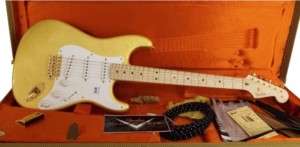How to choose a piano? Brief but comprehensive information on this issue
Today’s post will be more like an algorithm for finding the perfect solution for you. We will make a decision on a problem that can be stated as follows: “How to choose a piano.”
That’s just how people are: they are used to fussing over trifles and will never decide to make a purchase if they don’t know everything about the subject that is understandable to them or to the understanding of an authority figure for them. Hence the short conclusion – in order for the choice to be worthy, we just need to navigate a little in the very area of the issue on the agenda.
Yes, let’s return to the algorithm, or, if you like, to the information instructions. Just answer the questions for yourself and decide on your personal opinion on each of the steps described.
1. What is your goal when purchasing a piano?
Possible options here: the child’s musical studies at school, amateur music-making, or more serious musical studies (this threatens those who have entered a college or conservatory).
The comment is this: take an acoustic piano for your child – what if he becomes a pianist? In this case, it will be extremely important for him to develop strength in his hands; practicing on electronic pianos with a light keyboard is ineffective from this point of view. Ruthlessly reject all protests from your neighbors! For entertainment or for accompaniment to your favorite songs, a digital analogue will do, or a synthesizer will also do. Well, for those who decided to become a professional, God himself ordered them to get either a grand piano or a very strong, expensive piano
2. Where are you going to place the piano?
It is important to determine the size of your musical instrument, because it will take up part of the living space and space.
Of course, a piano takes up less space than a grand piano, and this is no secret. But, nevertheless, there are very cozy small grand pianos that only decorate the interior and do not create discomfort in the room, and there are bulky pianos that, although smaller than a grand piano, visually take up more space.
Therefore, before deciding to purchase, there is nothing easier than choosing a piano according to its parameters. Grand pianos are distinguished by length, and upright pianos by height.
The types of pianos are:
- minion – up to 140 cm in length;
- cabinet – from 150 to 180 cm in length;
- salon – from 190 to 220 cm in length;
- small and large concert ones – from 225 to 310 cm in length.
Piano Types:
- small ones, which are up to 120 cm in height;
- large ones, which range from 120 to 170 cm in height.
It’s important to note. Expect that the piano should be at least two meters away from heat sources (heating devices).
3. How much money are you willing to pay for a piano?
Of course, the cost of the musical instrument is also a major factor. It is best to determine in advance the cost limit that you need to meet. Based on this, it will be easier to decide on the class of the musical instrument. Do not forget that you will not only pay for the instrument itself, you will be forced to pay for transportation and loading, so cut the amount you have determined by 10% – you will set aside this for transportation and some unforeseen expenses.
4. What to take – new or not new?
There are pros and cons for each point.
Situation 1. We buy a new tool in a store or from a manufacturer
New and modern pianos, as a rule, do not have manufacturing defects. Defects during transportation can also be easily avoided by hiring conscientious movers. The instrument itself is not damaged by any past use or past owners. In addition, the new device will last a very long time if you follow some maintenance rules: the required level of humidity in the room (according to the technical data sheet), timely setup and adjustment. On the other hand, you won’t be able to appreciate the beauty of the sound on a new instrument (new instruments take a long time to play out), and even famous companies have mistakes in this area.
Situation 2. How to choose a used piano?
If the vector of your attention is aimed at repurchasing an instrument from another person, and not from a company, then to view the piano it is advisable to take with you a professional master in the class of such musical instruments, that is, a tuner.
What are the pitfalls here? The most unpleasant and annoying thing is to buy a piano or grand piano that does not stay in tune. Open the lid and take a closer look: if the veneer is sticking out from the tuning pegs, if the pegs themselves on which the strings are attached are not driven evenly, if the instrument does not have enough strings (gaps) – these are all bad signs. It is even useless to tune such a tool, since it is damaged. Another pebble is the price; the owner may simply not know it and assign it at random, in particular, and inflate it. The specialist will tell you exactly what you are paying for and how much.
There are, of course, positive aspects. This is just an opportunity to evaluate the sound. The played instrument will appear before you in all its glory or in all its shadow. You decide for yourself whether the sound is pleasant or disgusting to you. Be wary of buying instruments whose sound is too ringing and loud, or whose keyboard is too light. Good sound – soft and melodious, pearly; good keys are those that do not knock and do not fall sharply, but slightly tightly, as if supported by internal resistance.
Never ignore the appearance of a piano. Let them assure you that the instrument is ancient, sounds good, etc. You don’t want holes in the keys or holes in the pedals! You will suffer with them.
Advice: if you want to save money, do not buy used musical instruments in music stores – they will sell you anything and everything at a high price. Unfortunately, all the responsibility of the master musician to the client disappears somewhere when he needs not to advise, but to sell. Even companies that specialize in the restoration and repair of old instruments can sell you “firewood” with disgusting mechanics and an even more disgusting sound. Hence the conclusion: do not trust companies, trust only people.



